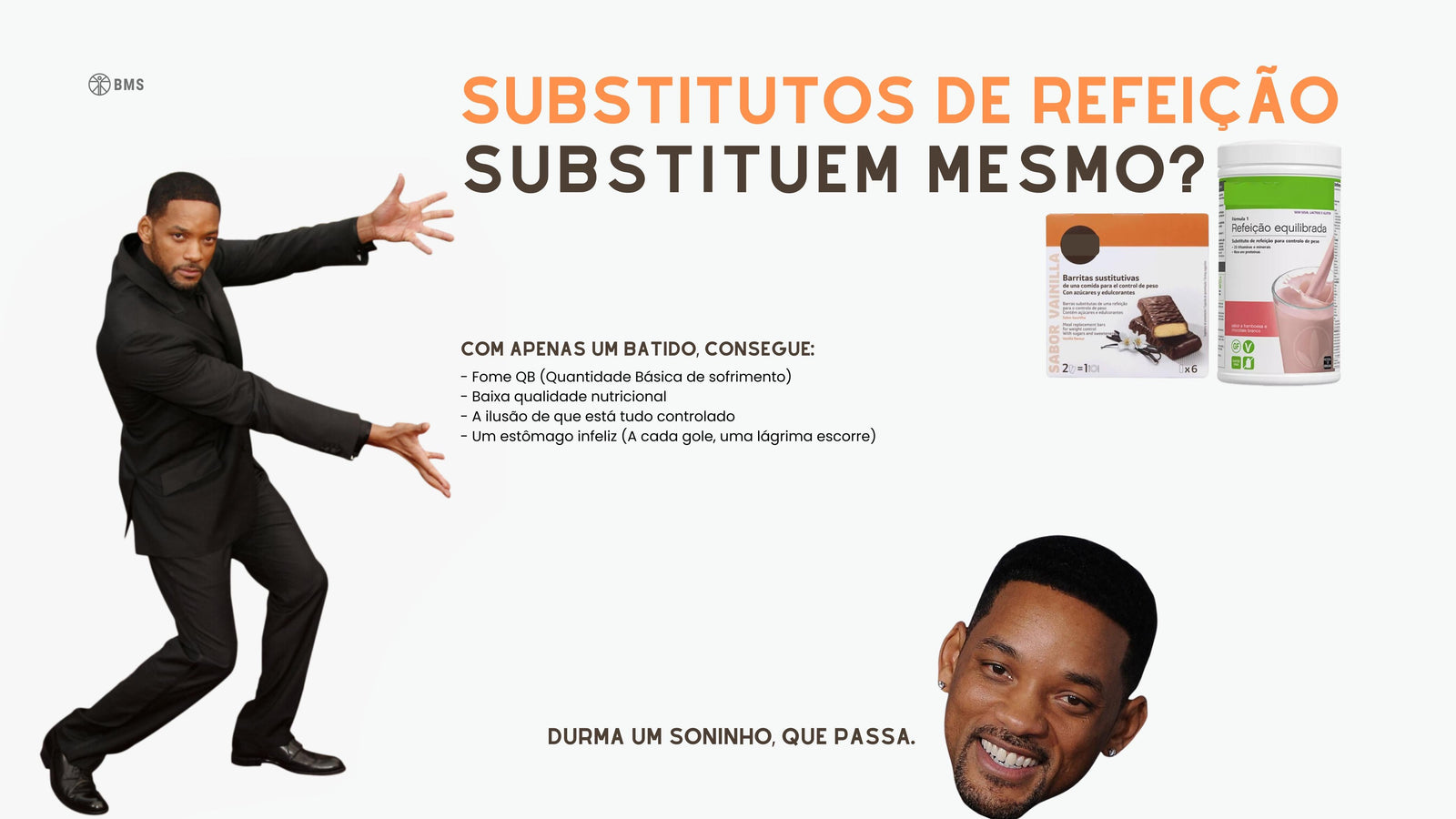With each passing day, the market is evolving more and more, and meal replacements have become very common products on supermarket shelves.
But what are these meal replacements?
Meal replacements are products formulated to provide the essential nutrients of a complete meal, but in a practical and quick way. They usually come in the form of shakes or bars, containing a balanced combination of proteins, carbohydrates, fats, fiber, vitamins and minerals.
Do they really replace a meal?
No shake or bar can replace a balanced meal. This is non-negotiable. However, in certain circumstances, they can be a practical solution.
In what situations?
· Busy schedule and no time for a complete meal.
· It's lunch or dinner time at the wheel, and you need to nourish yourself.
· You are outside your locality, and do not have access to healthy meals.
Using this type of option may make sense in some cases, although it is always a priority to have a complete and balanced meal, rather than eating a shake or a bar.
What do I do?
Pragmatically, we should always choose to eat soup, a complete dish, with a source of carbohydrates from meat, a source of protein and vegetables, and for example a piece of fruit for dessert. In very rare cases, as described above, meal replacements can be a good option.
Putting this into a practical case, it is better to drink a meal replacement shake than to go to a café to drink a soda and eat a slice of pizza. However, we should always try to avoid this type of situation.
But how do I avoid situations like these?
An excellent strategy to avoid this type of situation is to plan your meals for the week. For example, on days when we know this type of constraint will arise, we prepare a quick and practical meal in advance, but healthier and more complete, such as a wrap with tuna and vegetables, or even pita bread with grilled chicken. These are just two solutions out of dozens that exist.
Rui Lopes
BMS Nutritionists

